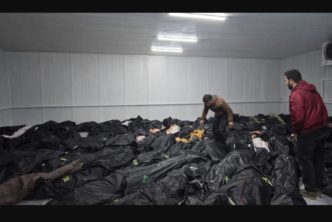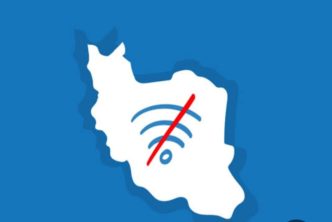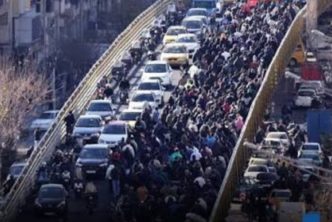Mahyar, the breadwinner and the eldest son of the family, voluntarily made his way to the Iran-Iraq warfronts when he was only 17. After the war he died in the streets of Tehran, where he came for the treatments of his injuries caused by Saddam’s chemical weapons, and his mother, who was waiting to see him well again after four years, never found the chance to say goodbye to him. Now, from time to time she travel 300 km from Rasht to Tehran to go to the massive cemetery in the south of the city and talk to his son. For her and others who lost their dear ones, for the war veterans, and for those who were injured by chemicals, or confined to bed and wheelchairs, the 8 years’ war did not really end in August 1988. Even now the lives of those affected by chemical bombs are being drastically lost.
In our visit to Rasht, my wife and I went to see this woman. It occurred to me there that are we to do something to prevent yet another conflict, as we have suffered so much that barely anyone wants to go through all those hardships and agonies again.
I fully understand the worries of the west about Iran. They think that a regime that has no mercy on its dissident citizens, would surely not sympathize with any of its many opponents around the world once it has gained access to nuclear bombs or WMD. For this very reason we have always called the Iranian government to observe human rights and countenance the rights of its opposition to win domestic and foreign trust and respect. However, at the same time I do believe there is a will among global powers to make changes to the world order and in this respect they are using human rights and nuclear issues as an excuse to push forward towards their preordained objectives, and the Iranian government is unintentionally bringing these ambitions to fruition by violating human rights inside the country and following inappropriate foreign policies.
One sees here an odd mincing of the words made by both sides to confuse the public opinion. Iranian and American politicians are making a great confusion and are trying to fish in troubled water. The US and the Europeans accuses Iran of trying to develop nuclear weapon and because of their general distrust they want to nip this risk in the bud. There are two reasons for reinforcing this scepticism; 1) Iran’s secret activities for 18 years, and 2) the ideological mottoes of the new government such as “the future is in the hand of Islam and Islamic revolution”, which conveys this meaning that if Iran possesses nuclear weapons she would surely use them to diffuse its version of Islam. Iran on the other hand insists on her right of having nuclear power and technology, each of them is defining the nuclear issue in accordance with their own interest. Iran must not enrich uranium because this would enable her to become even closer to having bombs, claims the US, whereas Iran is determined to enrich uranium saying that this is quite essential for having an indigenous nuclear technology and being independent.
The third voice here believes that they are talking about two different issues under a single disguise; having nuclear technology for peaceful purposes and having nuclear weapons are subjects which can be dealt with distinctly, when it is clearly defined and universally supervised.
This confusion is jeopardizing peace and brings into sight the possibility of another conflict. The question normally asked about this crisis is would the US attack Iran and if so would there be any benefits in this war for Iran? I believe that there is no clear conclusion to the first part of this question and what has drawn a lot of attention and has caused lots of debates is whether such a conflict would be useful for Iranians.
We believe that this problem can be solved within the country. Today in Iran after more than hundred years of efforts for freedom and consciousness, there is a high degree of political sensitivity and social consciousness, and at the same time dispersed authority. Even if there was a single source of authority there are influential figures, institutions; even traditional, non-governmental religious institutes, students’ unions and NGOs, with their own social power capable of imposing pressure on the decision-makers. Even today in what seems to be a uniform state, after the so-called reformist have been swept aside, four ministers in the cabinet of the new fundamentalist president could not get votes of confidence from the parliament dominated by conservatives. One should not forget that the Iranian experience of democracy, with all its ups and downs, has resulted in relative division of power and this is to expand in future. Today an individual cannot impose his absolute and outright power even if he wishes to do so. We have to distended this “cannot” by enlarging civil society and civil institutes. Therefore we are ready at all costs to endure all the hardships, imprisonment and deprivation to develop our own democracy. Any military attacks or any economic sanctions would ruin the insubstantial basis of democracy in Iran and make fundamentalist terrorism more predominant; sense of humiliation is the main element of any violence.
I am deeply concerned that once again we might have to go through the experience of Iranian students storming US embassy in Tehran and hostage-taking crisis in November 1979. At that time the students saw this as an act of protest, was not intended to take as long as 444 days, against US policy towards Iran and giving shelter to the deposed Shah. But eventually both sides were in a position that any negotiation and retraction was to mean to accept political defeat. This led to a course of unintended events, Iran-Iraq war and even toady’s nuclear crisis can be regarded as the natural consequences of those obstinate standpoints.
And now that both sides are expressing their position in loud voices, the third voice that calls for dialogue, negotiation and peace is not heard and sometimes suppressed.
Both sides are in conflictual positions. Analysts in Iran believe that if they retreat their position on nuclear issue the overall problem with the west would not come to an end. The next issue to rise is Iran’s standpoint in Middle East peace process, and then would be the accusation of supporting terrorism and subsequently the human rights issues. If we are to give grounds bit by bit, why shouldn’t we insist on the nuclear issue which is a matter of national pride and where we could enjoy popular support? The ultimate goal of the US and the West is to humiliate, discredit and remove us from power. Why should we play their game? They believe in the past negotiations they ”have given pearls and got candies instead”.
On the other side the US and the West have come to the conclusion that Iran intends to develop nuclear bombs therefore they have to stop it here. And in between are the ordinary people who are going to suffer most. After 8 years of bloody war with Iraq with more than 200,000 dead and many more injured and disabled Iranians are against war. In order to preserve their culture and civilization, they do not intend to get involved in yet another war. According to article three of the Universal Declaration of Human Rights “every one has the right to life”, and considering the fact that we are living at the time when this declaration is the dominant paradigm, Iranians have the right to condemn war. They are against nuclear weapons but would like to have this power for peaceful purposes.
Iran’s foreign policy lacks two very important elements; first is the intention to hold talks with the major side of this conflict, the US, and second is the understanding of realities, changes and development at the global level. Therefore as the first step the members of Iranian negotiating team ought to be replaced with more realistic people who are well aware of modern global developments, and secondly Iran has to start holding talks with the US.
The intention for supporting democracy in Iran ought to be carried out through valuing civil society and not through any military actions or economic sanctions. If required, Iranians could control their state. Reformists and even traditionalist can isolate fundamentalists from within as they have done so in many occasions. Mahyar’s mother does not want to mourn over her other children or witness their poverty and misery.




